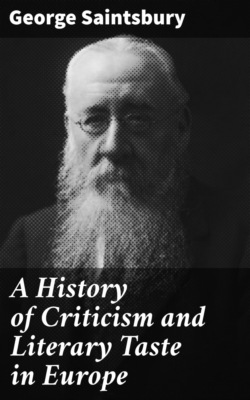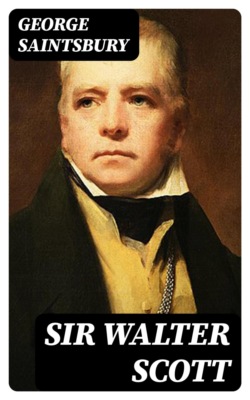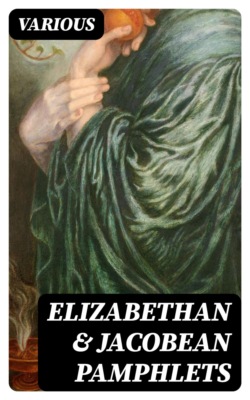Kitabı oku: «A History of Nineteenth Century Literature (1780-1895)», sayfa 25
CHAPTER VIII
PHILOSOPHY AND THEOLOGY
It is the constant difficulty of the literary historian, especially if he is working on no very great scale, that he is confronted with what may be called "applied" literature, in which not only is the matter of superior importance to the form, but the importance of the matter itself disappears to a greater or less extent with time. In these cases it is only possible for him to take notice of those writers who, whatever the subject they handled, would have written literature, and perhaps of those who from the unusual eminence and permanence of their position in their own subjects have attained as it were an honorary position in literature itself.
The literary importance and claim, however, of these applied branches varies considerably; and there have been times when the two divisions whose names stand at the head of this chapter even surpassed – there have been not a few in which they equalled – any section of the purest belles lettres in strictly literary attractions. With rare exceptions this has not been the case during the present century; poetry, fiction, history, and essay-writing having drawn off the best hands on the one side, while science has attracted them on the other. But the great Oxford Movement in the second quarter created no small amount of theological or ecclesiastical writing of unusual interest, while there had been earlier, and continued to be till almost the time when the occupation of the field by living writers warns us off, philosophers proper of great excellence. Latterly (indeed till quite recently, when a certain renaissance of philosophical writing not in jargon has taken place with a corresponding depression of the better kind of literary theology) the philosophers of Britain have not held a prominent place in her literature. Whether this was because they have mostly been content to Germanise, or because they have not been provided with sufficient individual talent, it is fortunately unnecessary for us to attempt to determine in this place and at this time.
Among the dead writers of the century who are known wholly or mainly for the cultivation of philosophical studies, Bentham, Mackintosh, John Stuart Mill (to whom some would add his father James), Sir William Hamilton, Dean Mansel, are likely to hold a place in history, while at present many might be disposed to add the name of Mr. T. H. Green, a tutor of Balliol College, who between 1870 and his death propagated in Oxford a sort of neo-Hegelianism much tinctured with political and social Liberalism, and obtained a remarkable personal position. It is however as yet too early to assign a distinct historical place to one whose philosophy was in no sense original, though it was somewhat originally combined and applied, and who exhibited very small literary skill in setting forth. The others are already set "in the firm perspective of the past," and, with yet others who, still living, escape our grasp, have their names clearly marked for a place in an adequate history.
Jeremy Bentham, a curious person who reminds one of a Hobbes without the literary genius, was born in London, near Houndsditch, as far back as 5th February 1748. He was the son of a solicitor who was very well off, and wished his son to take to the superior branch of the law. Jeremy was sent to Westminster, and thence to Queen's College, Oxford, in his thirteenth year. He was a Master of Arts at eighteen, and was called to the Bar six years later; but he never practised. He must have been very early drawn to the study of the French philosophes; much indeed of the doctrine which afterwards made him famous was either taken from, or incidentally anticipated by, Turgot and others of them, and it was a common remark, half in earnest half in gibe, that Bentham's views had made the tour of Europe in the French versions of Dumont before they attained to any attention in England. In 1776 he wrote a Fragment on Government, a kind of critique of Blackstone, which is distinguished by acute one-sided deduction from Whig principles; and he became a sort of prophet of the Whigs, who sometimes plagiarised and popularised, sometimes neglected, his opinions. He never married, though he would have liked to do so; and lived on his means till 1832, when he died in the eighty-fifth year of his age. His chief books after the Fragment had been his Theory of Punishments and Rewards; 1787, Letters on Usury; 1789, Introduction to the Principles of Morals and Legislation; 1813, Treatise on Evidence; and 1824, Fallacies.
The central pillar and hinge of all Bentham's doctrines in politics, morals, and law is the famous principle of Utility, or to use the cant phrase which he borrowed from Priestley, "the greatest happiness of the greatest number." What the greatest number is – for instance whether in a convict settlement of forty thieves and ten honest men, the thieves are to be consulted – and what happiness means, what is utility, what things have brought existing arrangements about, and what the loss of altering them might be, as well as a vast number of other points, Bentham never deigned to consider. Starting from a few crude phrases such as this, he raised a system remarkable for a sort of apparent consistency and thoroughness, and having the luck or the merit to hit off in parts not a few of the popular desires and fads of the age of the French Revolution and its sequel. But he was a political theorist rather than a political philosopher, his neglect of all the nobler elements of thought and feeling was complete, and latterly at least he wrote atrocious English, clumsy in composition and crammed with technical jargon. The brilliant fashion in which Sydney Smith has compressed and spirited his Fallacies into the famous "Noodle's Oration" is an example of the kind of treatment which Bentham requires in order to be made tolerable in form; and even then he remains one-sided in fact.
Sir James Mackintosh has been mentioned before, and is less of a philosopher pure and simple than any person included in this list – indeed his philosophical reputation rests almost wholly upon his brilliant, though rather slight, Dissertation on Ethics for the Encyclopædia Britannica. The greater part by far of his by no means short life (1765-1832) was occupied in practising medicine and law, in defending the French Revolution against Burke (Vindiciæ Gallicæ, 1791); in defending the French Royalists in the person of Peltier against Bonaparte, 1803; in acting as Recorder and Judge in India, 1804-1811; and in political and literary work at home for the last twenty years, his literature being chiefly history, and contributions to the Edinburgh Review. But there has been a certain tendency, both in his own time and since, to regard Mackintosh as a sort of philosopher thrown away. If he was so, he would probably have made his mark rather in the history of philosophy than in philosophy itself, for there are no signs in him of much original depth. But he wrote very well, and was a sound and on the whole a fair critic.
Of the two Mills, the elder, James, was like Mackintosh only an interim philosopher: his son John belongs wholly to our present subject. James was the son of a farmer, was born near Montrose in 1773, and intended to enter the ministry, but became a journalist instead. In the ten years or so after 1806, he composed a History of British India, which was long regarded as authoritative, but on which the gravest suspicions have recently been cast. Mill, in fact, was a violent politician of the Radical type, and his opinions of ethics were so peculiar that it is uncertain how far he might have carried them in dealing with historical characters. His book, however, gained him a high post in the East India Company, the Directors of which just at that time were animated by a wish to secure distinguished men of letters as servants. He nevertheless continued to write a good deal both in periodicals and in book form, the chief examples of the latter being his Political Economy, his Analysis of the Human Mind, and his Fragment on Mackintosh. James Mill, of whom most people have conceived a rather unfavourable idea since the appearance of his son's Autobiography, was an early disciple of Bentham, and to a certain extent resembled him in hard clearness and superficial consistency.
His son John Stuart was born in London on 20th May 1806, and educated by his father in the unnatural fashion which he has himself recorded. Intellectually, however, he was not neglected, and after some years, spent mainly in France, he was, through his father's influence, appointed at seventeen to a clerkship in the India House, which gave him a competence for the rest of his life and a main occupation for thirty-four years of it. He was early brought into contact (by his father's friendship with Grote and others) with the Philosophical Radicals, as well as with many men of letters, especially Carlyle, of the destruction of the first version of whose French Revolution Mill (having lent it to his friend Mrs. Taylor) was the innocent cause. To this Mrs. Taylor, whom he afterwards married, Mill was fanatically attached, the attachment being the cause of some curious flights in his later work. His character was very amiable, and the immense influence which, especially in the later years of his life, he exercised, was partly helped by his personal friendships. But it was unfortunate for him that in 1865 he was returned to Parliament. His political views, though it was the eve of the triumph of what might be called his party, were doctrinaire and out of date, and his life had given him no practical hold of affairs, so that he more than fulfilled the usual prophecy of failure in the case of men of thought who are brought late in life into action. Fortunately for him he was defeated in 1868, and passed the rest of his life mostly in France, dying at Avignon on 8th May 1873.
Brought up in an atmosphere of discussion and of books, Mill soon took to periodical writing, and in early middle life was for some years editor of the London and Westminster Review; but his literary ambition, which directed itself not to pure literature but to philosophical and political discussion, was not content with periodical writing as an exercise, and his circumstances enabled him to do without it as a business. In 1843 he published what is undoubtedly his chief work, A System of Logic, Ratiocinative and Inductive, five years later a companion treatise on Political Economy which may perhaps rank second. In 1859 his essay on Liberty, a short but very attractive exposition of his political principles, appeared; next year a collection of essays entitled Dissertations and Discussions. After lesser works on Utilitarianism and on Comte, of whom he had been a supporter in more senses than one, but whose later eccentricities revolted him, he issued in 1865 his Examination of Sir William Hamilton's Philosophy, which ranks as the third of his chief works, and completes his system, as far as a system so negative can be said to be completed, on the side of theology and metaphysics. Among his smaller works may be mentioned Representative Government, and (very late) the fanatical and curious Subjection of Women. His Autobiography, an interesting but melancholy book, appeared shortly after his death.
Mill must be accounted on the whole by good judges, even if they are utterly opposed to his whole system of philosophy, the chief philosophical writer of England in this century; and the enormous though not permanent influence which he attained about its middle was deserved, partly by qualities purely literary, but partly also by some purely philosophical. He had inherited from his father not merely the theoretical exaltation of liberty (except in the philosophical sense) which characterised eighteenth century philosophers, but also that arrogant and pragmatical impatience of the supernatural which was to a still greater extent that century's characteristic. The arrogance and the pragmaticality changed in John Stuart Mill's milder nature to a sort of nervous dread of admitting even the possibility of things not numerable, ponderable, and measurable; and it may be observed with amusement that for the usual division of logic into Deductive and Inductive he substituted Ratiocinative for the first member, so as not even by implication to admit the possibility of deduction from any principles not inductively given. So, too, later, in his Examination of Sir William Hamilton, between the opposing spectres of Realism and Idealism, he was driven to take refuge in what he called "permanent possibilities" of Sensation, though logicians vainly asked how he assured himself of the permanence, and jesters rudely observed that to call a bottle of gin a "permanent possibility of drunkenness" was an unnecessary complication of language for a very small end or meaning. His great philosophical weapon (borrowed from though of course not invented by his father) was the Association of Ideas, just as his clue in political economy was in the main though not exclusively laissez-faire, in ethics a modified utilitarianism, and in politics an absolute deference to, tempered by a resigned distrust of, the majority. The defect in a higher and more architectonic theory of the world with which he has been charged is not quite justly chargeable, for from his point of view no such theory was possible.
Even those, however, who, as the present writer acknowledges in his own case, are totally opposed to the whole Millian conception of logic and politics, of metaphysics and morality, must, unless prejudiced, admit his great merits of method and treatment. He not only very seldom smuggles in sophistry into the middle of his arguments, but even paralogisms are not common with him; it is with his premises, not with his conclusions, that you must deal if you wish to upset him. Unlike most contemners of formal logic, he is not in much danger, as far as his merely dialectic processes go, from formal logic itself; and it is in the arbitrary and partial character of his preliminary admissions, assumptions, and exclusions that the weak points of his system are to be found.
His style has also very considerable merits. It is not brilliant or charming; it has neither great strength nor great stateliness. But it is perfectly clear, it is impossible to mistake its meaning, and its simplicity is unattended by any of the down-at-heel neglect of neatness and elegance which is to be found, for instance, in Locke. Little scholastic as he was in most ways, Mill had far outgrown the ignorant eighteenth century contempt of the Schoolmen, and had learnt from them an exact precision of statement and argument, while he had managed to keep (without its concomitant looseness and vulgarity) much of the eighteenth century's wholesome aversion to jargon and to excess of terminology. In presenting complicated statements of detail, as in the Political Economy, the Representative Government, and elsewhere, he has as much lucidity as Macaulay, with an almost total freedom from Macaulay's misleading and delusive suppression of material details. And besides his usual kind of calm and measured argument, he can occasionally, as in divers passages of the Sir William Hamilton and the political books, rise or sink from the logical and rhetorical points of view respectively to an impassioned advocacy, which, though it may be rarely proof against criticism, is very agreeable so far as it goes. That Mill wholly escaped the defects of the popular philosopher, I do not suppose that even those who sympathise with his views would contend; though they might not admit, as others would, that these defects were inseparable from his philosophy in itself. But it may be doubtful whether, all things considered, a better literary type of the popular philosopher exists in modern English; and it certainly is not surprising that, falling in as he did with the current mode of thought, and providing it with a defence specious in reasoning and attractive in language, he should have attained an influence perhaps greater than that of which any English philosophical writer has been able during his lifetime to boast.
The convenience of noticing the Mills together, and of putting Sir William Hamilton next to his most famous disciples, seems to justify a certain departure from strict chronological order. Hamilton was indeed considerably the senior of his critic, having been born on 8th March 1788. His father and grandfather, both professors at the University of Glasgow, had been plain "Dr. Hamilton." But they inherited, and Sir William made good, the claim to a baronetcy which had been in abeyance since the days of Robert Hamilton, the Covenanting leader. He himself proceeded from Glasgow, with a Snell Exhibition, to Balliol in 1809. He was called to the Scottish Bar, but never practised, though some business came to him as Crown solicitor in the Court of Teinds (tithes). He competed in 1820 for the Chair of Moral Philosophy, which Wilson, with far inferior claims, obtained; but it is fair to say that at the time the one candidate had given no more public proofs of fitness than the other. Soon, however, he began to make his mark as a contributor of philosophical articles to the Edinburgh Review, and in 1836 he obtained a professorship in the University for which he was even better fitted – that of Logic and Metaphysics. His lectures became celebrated, but he never published them; indeed his only publication of any importance during his lifetime was a collection of his articles under the title of Dissertations, with the exception of his monumental edition of Reid, on which he spent, and on which it has sometimes been held that he wasted, most of his time. He died in 1856, and his lectures were published after his death by his successor, Professor Veitch (himself an enthusiastic devotee of literature, especially Border literature, as well as of philosophy), and his greatest disciple, Mansel, between 1859 and 1861. And this was how Mill's Examination came to be posthumous. The "Philosophy of the Conditioned," as Hamilton's is for shortness called, could not be described in any brief, and perhaps not with propriety in any, space of the present volume. It is enough to say that it was an attempt to reinforce the so-called "Scotch Philosophy" of Reid against Hume by the help of Kant, as well as at once to continue and evade the latter without resorting either to Transcendentalism or to the experience-philosophy popular in England. In logic, Hamilton was a great and justly honoured defender of the formal view of the science which had been in persistent disrepute during the eighteenth century; but some of the warmest lovers of logic doubt whether his technical inventions or discoveries, such as the famous Quantification of the Predicate, are more than "pretty" in the sense of mathematicians and wine-merchants. This part of his doctrine, by the way, attracted special attention, and was carefully elaborated by another disciple, Professor Thomas Spencer Baynes (1823-1887), who, after chequering philosophy with journalism, became editor of the Encyclopædia Britannica, and a careful Shakespearian student. Yet another disciple, and the most distinguished save one, was James Frederick Ferrier, nephew of Susan Ferrier, to whom we owe three most brilliant novels, who was born in 1808 and died in 1864 at St. Andrews, where he had for nearly twenty years been Professor of Moral Philosophy, after previously holding for a short time a History Professorship at Edinburgh. Of this latter University Ferrier had been an alumnus, as well as of Oxford. He edited his father-in-law Wilson's works, and was a contributor to Blackwood's Magazine, but his chief book was his Institutes of Metaphysic, published in 1854. Too strong a Hamiltonian influence (not in style but in some other ways), and an attempt at an almost Spinosian rigidity of method, have sometimes been held to have marred Ferrier's philosophical performance; but it is certain that he had the makings of a great metaphysician, and that he was actually no small one.
The great merit of Hamilton was that he, in a somewhat irregular and informal way (for, as has been said, he was ostensibly more a commentator and critic than an independent theorist), introduced German speculation into England after a fashion far more thorough than the earlier but dilettante and haphazard attempts of De Quincey and Coleridge, and contributed vastly to the lifting of the whole tone and strain of English philosophic disputation from the slovenly commonsense into which it had fallen. In fact, he restored metaphysics proper as a part of English current thought; and helped (though here he was not alone) to restore logic. His defects were, in the first place, that he was at once too systematic and two piecemeal in theory, and worse still, that his philosophical style was one of the very worst existing, or that could exist. That this may have been in some degree a designed reaction from ostentatious popularity is probable; and that it was in great part caught from his studious frequentation of that Hercynian forest, which takes the place of the groves of Academe in German philosophical writing, is certain. But the hideousness of his dialect is a melancholy fact; and it may be said to have contributed at least as much to the decadence of his philosophical vogue as any defects in the philosophy itself. He was, in fact, at the antipodes from Mill in attractiveness of form as well as in character of doctrine.
There are some who think that Henry Longueville Mansel was actually in more than one respect, and might, with some slight changes of accidental circumstance, have been indisputably, the greatest philosopher of Britain in the nineteenth century. Of the opinion entertained by contemporaries of great intellectual gifts, that of Mark Pattison, a bitter political and academical opponent, and the most acrimonious critic of his time, that Mansel was, though according to Pattison's view, an "arch-jobber," an "acute thinker, and a metaphysician" seems pretty conclusive. But Mansel died in middle age, he was much occupied in various kinds of University business, and he is said by those who knew him to have been personally rather indolent. He was born in Northamptonshire on 6th October 1820, and after school-days at Merchant Taylors' passed in the then natural course to St. John's College, Oxford, of which he became fellow. He was an active opponent of the first University Commission, in reference to which he wrote the most brilliant satire of the kind proper to University wits which this century has produced – the Aristophanic parody entitled Phrontisterion. But the Commission returned him good for evil, insomuch as he became the first Waynflete Professor of Moral and Metaphysical Philosophy, a post created in consequence of it. In 1859 he was Bampton Lecturer, and his sermons in this office again attained the first excellence in style, though they were made the subject of severe criticism not merely by the disciples of Liberal philosophy, but by some timid defenders of orthodoxy, for their bold application of the philosophy of the conditioned, on scholastic lines, to the problems of theodicy. Mansel was not a more frequent lecturer than the somewhat indulgent conditions of the English Universities, especially Oxford, even after the Commission, required; but his deliverances were of exceptional importance, both in conception and expression. At the death of Milman, his political friends being in power, he was made Dean of St. Paul's, but enjoyed the dignity only a short time, and died in 1870. Besides Phrontisterion and his Bampton Lectures, which bring him under both the divisions of this chapter, he had published in his lifetime an excellent edition of Aldrich's "Logic," Prolegomena Logica (the principal work of the Hamiltonian school, though quite independent in main points), and an enlarged edition of an Encyclopædia dissertation on Metaphysics. His essays, chiefly from the Quarterly Review, were published after his death, with Phrontisterion and other things.
It will appear from this brief summary that Mansel was a many-sided man; and it may be added that he possessed an exceptionally keen wit, by no means confined to professional subjects, and was altogether far more of a man of the world than is usual in a philosopher. But though this man-of-the-worldliness may have affected the extent and quantity of his philosophical work, it did not touch the quality of it. It may be contended that Mansel was on the whole rather intended for a critic or historian of philosophy than for an independent philosophical teacher; and in this he would but have exhibited a tendency of his century. Yet he was very far from mere slavish following even of Hamilton, while the copying, with a little travesty and adjustment of German originals, on which so much philosophical repute has been founded in England, was entirely foreign to his nature and thought. In Mill's Examination of Hamilton, the Bampton Lectures, above referred to, came in for the most vehement protest, for Mill, less blind than the orthodox objectors, perceived that their drift was to steer clear of some of the commonest and most dangerous reefs and shoals on which the orthodoxy of intelligent but not far-sighted minds has for some generations past been wrecked. But Mansel's rejoinder, written at a time when he was more than ever distracted by avocations, and hampered certainly by the necessity of speaking for his master as well as for himself, and probably by considerations of expediency in respect to the duller of the faithful, was not his happiest work. In fact he was too clear and profound a thinker to be first-rate in controversy – a function which requires either unusual dishonesty or one-sidedness in an unusual degree. He may sometimes have been a very little of a sophist – it is perhaps impossible to be a great philosopher without some such touch. But of paralogism – of that sincere advancing of false argument which from the time of Plato has been justly regarded as the most fatal of philosophic drawbacks – there is no trace in Mansel. His natural genius, moreover, assisted by his practice in miscellaneous writing, which though much less in amount of result than Mill's was even more various in kind, equipped him with a most admirable philosophical style, hitting the exact mean between the over-popular and the over-technical, endowing even the Prolegomena Logica with a perfect readableness, and in the Metaphysics and large parts of the editorial matter of the Aldrich showing capacities which make it deeply to be regretted that he never undertook a regular history of philosophy.
The place which might have been thus filled, was accepted but partially and with no capital success by divers writers. Frederick Denison Maurice, who will be mentioned again in this chapter, wrote on Moral and Metaphysical Philosophy, but the book, though like all his work attractively written, does not show very wide or very profound knowledge of the subject. The Lectures on the History of Ancient Philosophy, by William Archer Butler, a Dublin professor, who died prematurely, would probably, had the author lived, have formed the best history of the subject in English, and even in their fragmentary condition make an admirable book, free from jargon, not unduly popular, but at once sound and literary. The most ambitious attempt at the whole subject was that of George Henry Lewes, the companion of George Eliot, a versatile man of letters of great ability, who brought out on a small scale in 1845, and afterwards on a much larger one, a Biographical History of Philosophy. This, though occasionally superficial, and too much tinged with a sort of second-hand Positivism, had, as the qualities of these defects, an excellent though sometimes a rather treacherous clearness, and a unity of vision which is perhaps more valuable for fairly intelligent readers than desultory profundity. But it can hardly take rank as a book of philosophical scholarship, though it is almost a brilliant specimen of popular philosophical literature.
Philosophy, science, and perhaps theology may dispute between them two remarkable figures, nearly contemporary, the one an Oxford and the other a Cambridge man – Whately and Whewell. Besides the differences which their respective universities impress upon nearly all strong characters, there were others between them, Whately being the better bred, the more accomplished writer, and the more original, Whewell the more widely informed, and perhaps the more thoroughgoing. But both were curiously English in a sort of knock-me-down Johnsonian dogmatism; and both were in consequence extremely intolerant. For Whately's so-called impartiality consisted in being equally biassed against Evangelicals and Tractarians; and both were accused by their unfriends of being a little addicted to the encouragement of flatterers and toadies. Richard Whately, the elder, was born in London in 1787, his father being a clergyman in the enjoyment of several pluralities. He went to Oriel, gained a fellowship there in 1811, and was with intervals a resident in Oxford for some twenty years, being latterly Principal of St. Alban Hall (where he made Newman his Vice-Principal), and in 1829 Professor of Political Economy. In 1831 the Whigs made him Archbishop of Dublin, which difficult post he held for more than thirty years till his death in 1863. His work is not very extensive, but it is remarkable. His Historic Doubts relative to Napoleon Bonaparte was an exceedingly clever "skit" on the Rationalist position in regard to miracles and biblical criticism generally; though Whately's orthodoxy was none of the strictest. His Bampton Lectures on Party Feeling in Religion preceded rather curiously the greatest outburst of the said party feeling which had been seen in England since the seventeenth century. But the books by which he is or was most widely known are his Logic and Rhetoric, expansions of Encyclopædia articles (1826 and 1828) intentionally popular and perhaps almost unnecessarily exoteric, but extremely stimulating and clear. Whately, who had some points in common with Sydney Smith, was, like him, in part the victim of the extreme want of accuracy and range in the Oxford education of his youth; but his mental and literary powers were great.










